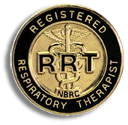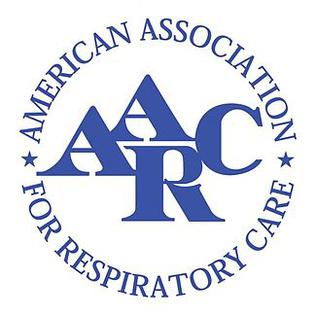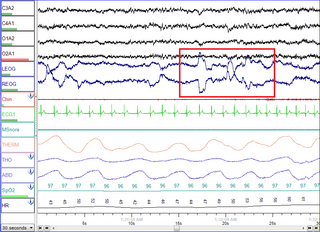
Neurology is a branch of medicine dealing with disorders of the nervous system. Neurology deals with the diagnosis and treatment of all categories of conditions and disease involving the central and peripheral nervous systems, including their coverings, blood vessels, and all effector tissue, such as muscle. Neurological practice relies heavily on the field of neuroscience, the scientific study of the nervous system.

Physical therapy (PT), also known as physiotherapy, is one of the allied health professions that, by using mechanical force and movements, manual therapy, exercise therapy, and electrotherapy, remediates impairments and promotes mobility and function. Physical therapy is used to improve a patient's quality of life through examination, diagnosis, prognosis, physical intervention, and patient education. It is performed by physical therapists.

A respiratory therapist is a specialized healthcare practitioner trained in pulmonary medicine in order to work therapeutically with people suffering from pulmonary disease. Respiratory therapists graduate from a community college or university with a certification in respiratory therapy and have passed a national board certifying examination. The NBRC is the not-for-profit organization responsible for credentionaling the seven areas of Respiratory Therapy.

Pulmonology is a medical speciality that deals with diseases involving the respiratory tract. The term is derived from the Latin word pulmō, pulmōnis ("lung") and the Greek suffix -λογία, -logia. Pulmonology is synonymous with pneumology, respirology and respiratory medicine.
The scope of practice describes the procedures, actions, and processes that a healthcare practitioner is permitted to undertake in keeping with the terms of their professional license. The scope of practice is limited to that which the law allows for specific education and experience, and specific demonstrated competency. Each jurisdiction has laws, licensing bodies, and regulations that describe requirements for education and training, and define scope of practice.

Shallow breathing, or chest breathing is the drawing of minimal breath into the lungs, usually by drawing air into the chest area using the intercostal muscles rather than throughout the lungs via the diaphragm. Shallow breathing can result in or be symptomatic of rapid breathing and hypoventilation. Most people who breathe shallowly do it throughout the day and are almost always unaware of the condition.

Sleep medicine is a medical specialty or subspecialty devoted to the diagnosis and therapy of sleep disturbances and disorders. From the middle of the 20th century, research has provided increasing knowledge and answered many questions about sleep-wake functioning. The rapidly evolving field has become a recognized medical subspecialty in some countries. Dental sleep medicine also qualifies for board certification in some countries. Properly organized, minimum 12-month, postgraduate training programs are still being defined in the United States. In some countries, the sleep researchers and the physicians who treat patients may be the same people.

A registered respiratory therapist (RRT) is a certification for respiratory practitioners. In the United States, the certificate for the RRT is issued by the National Board for Respiratory Care after passing the NBRC-WRE and NBRC-CSE examinations. Eligibility for the NBRC RRT examinations are both previously passing the entry-level examination for the certification of Certified Respiratory Therapist, the NBRC-ELE, and holding at least an Associate of Science in Respiratory Care. In Canada the RRT certification is granted by examination from the Canadian Society of Respiratory Therapists. Internationally, respiratory care is governed by local governments and certification or license to practice as a respiratory practitioner is managed locally without the use of separate organizations as in the United States and Canada.
The Canadian Sleep Society (CSS) / Société Canadienne du Sommeil (SCS) is a professional organization whose membership is made up of Physicians, sleep researchers, polysomnographic technicians, dentists, clinical psychologists, students/trainees, and other certified allied health professionals.
In the United States, Certified Pulmonary Function Technician (CPFT) is a medical technician who is at least a Certified Respiratory Therapist and at most a Registered Respiratory Therapist that has successfully passed the national certification exam. A pulmonary function technician assists a Registered Pulmonary Function Technician with performing function tests on patients. Tests are done both inpatient and outpatient and in specialty clinics such as asthma clinics and sleep centers.

The American Association for Respiratory Care (AARC) is a non profit organization and is the only professional organization supporting Respiratory Care in the United States. In addition to attempting to help lobby for beneficial legislation nationally and locally, the AARC is trying to promote the profession as a whole to increase interest and membership. The AARC began in 1943, as the Inhalation Technician Association and has evolved rapidly and repeatedly since.
The National Board for Respiratory Care (NBRC) Inc. is a non-profit organization formed in 1960 with the purpose of awarding and maintaining credentialing for Respiratory Therapists in the United States. The NBRC is the only organization in the United States which develops certification examinations for Registered Respiratory Therapists (RRTs) and Certified Respiratory Therapists (CRTs). The NBRC also offers additional specialization credentialing for respiratory practitioners that hold its certifications. The CRT and RRT designations are the standard credential in respiratory care for licensure requirements in the portions of the United States that have enacted a Respiratory Care Act. States that license respiratory therapists sometimes require the practitioner to maintain their NBRC credentialing to maintain their license to practice. The NBRC is headquartered in Overland Park, Kansas. It has been in the Kansas City metropolitan area since 1974. The NBRC is located at 10801 Mastin St, Suite 300, Overland Park, KS 66210.
A polysomnographic technologist performs overnight, daytime, or home sleep studies, polysomnograms, on people with suspected sleep disorders. In the United States and worldwide, the process for becoming a polysomnography technician or technologist is primarily either on-the-job or certificate based. There are associate level programs offered by for-profit schools that award a degree in polysomnography technology in the United States, though not necessary to attain employment with the same title. After an education program or adequate on-the-job training is complete, the student is eligible for credentialing by the Board of Registered Polysomnographic Technologists (BRPT), a non-profit credentialing agency based in the United States but serving polysomnographers worldwide. The BRPT maintains credentialing for over 35 countries including Canada and the United States as well as over 17,000 individuals working in the industry.
A Pulmonary Scientist is a health care occupation in the field of diagnostic studies related specifically to pulmonary function, the term Respiratory Scientist may also refer to a Pulmonologist who holds a medical degree and a doctoral degree (MD-PhD). Internationally pulmonary scientists have many different titles, such as: pulmonary function technologist, respiratory scientist, pulmonary scientist, cardiopulmonary specialist and in some places registered respiratory therapists are also used in the role of pulmonary scientists. A physician in respiratory science is generally referred to as a physician in their title.
The American Board of Sleep Medicine (ABSM) says in its website, "The [ABSM] is an independent, nonprofit organization whose certifications are recognized throughout the world as a credential signifying a high level of competence for sleep medicine physicians, PhDs, behavioral sleep medicine specialists and sleep technologists." It shares office space and at least some staff with the American Academy of Sleep Medicine (AASM) at 2510 N. Forntage Rd., Darien, Illinois 60561. The two organizations are closely related and serve basically the same constituency.
Healthcare professional credentials are credentials awarded to many healthcare practitioners as a way to standardize the level of education and ability to provide care.
Manitoba Association of Registered Respiratory Therapists is Manitoba's professional and licensing body governed by the Respiratory Therapy Act of Manitoba.









